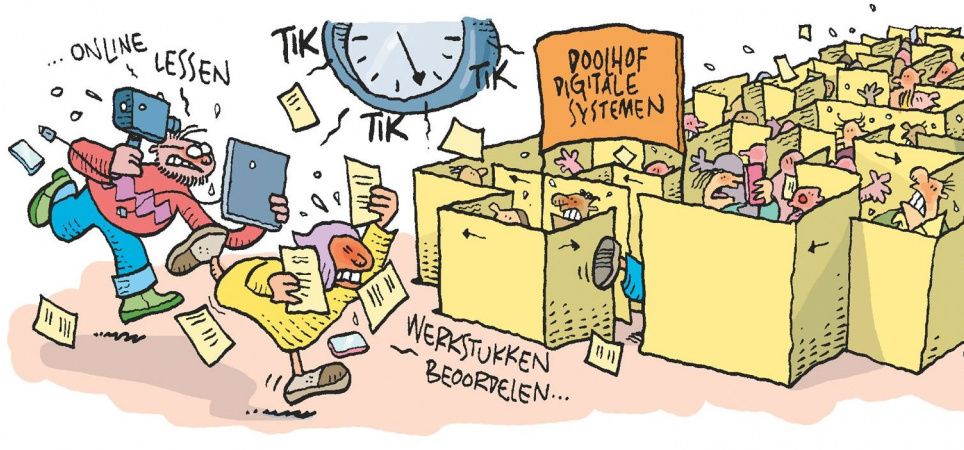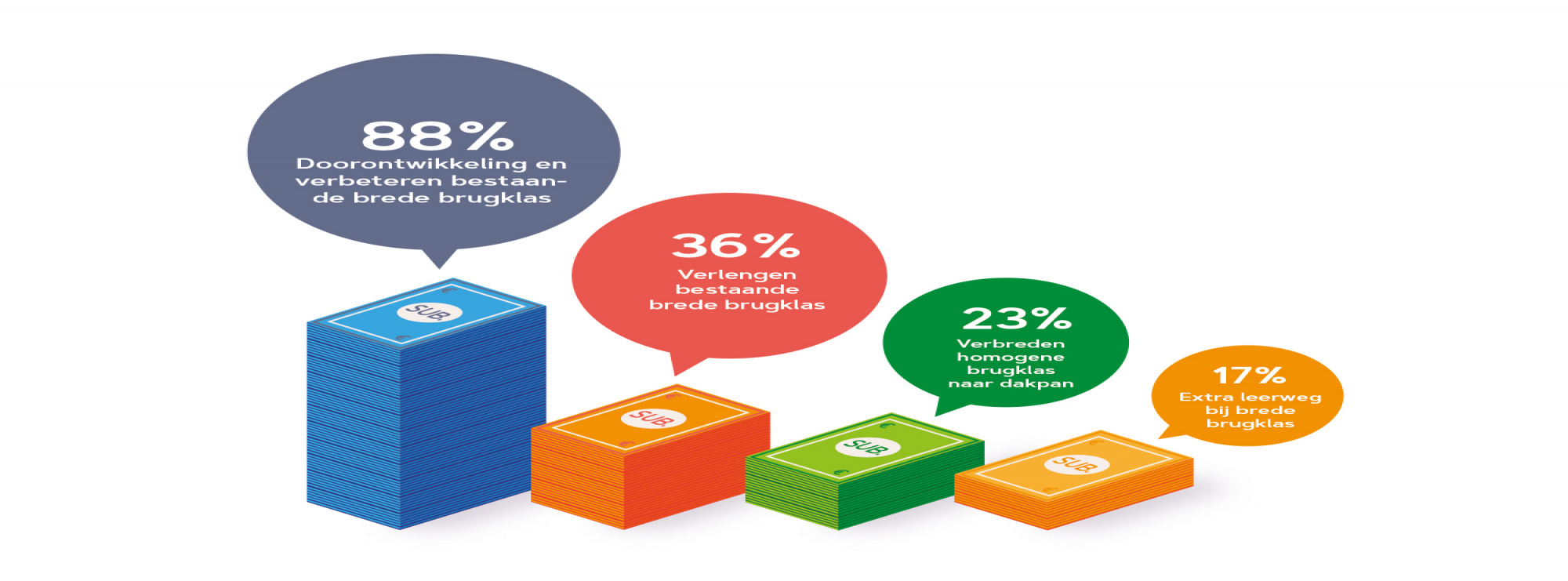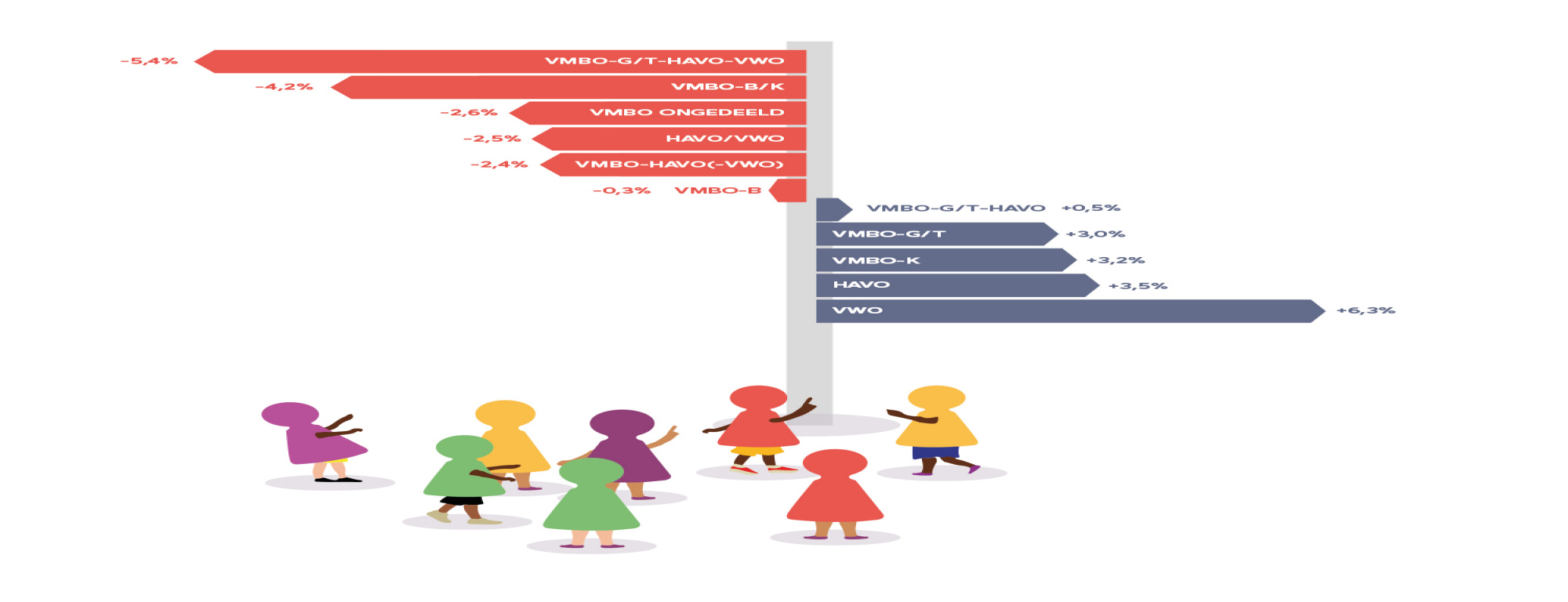Working overtime is a regular occurrence in HBO
Higher professional education teachers have to do too much in too little time. Two out of three teachers cannot finish their work within working hours. Working on weekends and during the holidays is a permanent fixture for almost everyone.

Overtime is normal among higher vocational education teachers. This is the conclusion of a study into the time use of higher vocational education teachers, in which 615 teachers from four different universities of applied sciences participated. Bureau Zestor conducted the research at the request of both trade unions and universities of applied sciences. The participants completed questionnaires about their time use at the end of 2021 and in the spring of 2022. “This is not a peak load. The time allocation is simply not correct.”
You just need to get more time for your work as a teacher
Sjoerd van Vliet, higher education sector manager at the AOb and lecturer in business economics at Hogeschool Rotterdam experiences every day that he and his colleagues lack time for all the tasks on their plate, he says. But he is still shocked by these numbers. “Teachers work 30 percent more hours each week than they are paid for. In discussions it is often about 'polite workload' or 'working more effectively and efficiently'. The ball is quickly put in the court of an individual employee, who is then advised to take a time management course. But this research clearly shows that you just need to get more time for your work as a teacher."

“The method of allocating hours does not always show an understanding of everyday reality,” says Mieke van Heerebeek (59), senior lecturer in pedagogy at Inholland University of Applied Sciences. “I have the impression that people sometimes think: you start your laptop and teach. But in practice you are in the classroom ten minutes in advance to connect and start everything up, to put tables and chairs in the right place and afterwards there are always students who want to ask something. That is great fun and important, but it also takes at least ten minutes before you leave the room. We used to have support staff who set everything up, but that has long since disappeared.” Even as an experienced teacher, preparation takes time: “You feel responsible for your students and for the quality. You cannot give a lecture half prepared for 120 students. Then you become deeply unhappy, you have to be there 100 percent, a little less is not possible.” The administrative workload has also increased, she says. “We work with all kinds of different digital systems, which is often a maze: assessment forms, class lists, grade tracking systems. You have to enter, upload and figure out everything yourself and if you have to do that with 40 students, it's stupid and tedious and not mindful at all. And it has nothing to do with the content of my profession.”
Workshop Leading
The time allocation is simply not correct, says Van Heerebeek. John de Jong (62 years old), lecturer at Hogeschool Utrecht, agrees. “Supervising students, for example, takes much more time than is generally expected. The time you get to review workpieces is also tight and there is always the pressure to do it quickly. It often happens that I work on Sundays. I don't like that myself and it is also stressful for the people around me."
De caseload is much heavier*Response from Maurice Limmen, chairman of the Association of Universities of Applied Sciences: “Work pressure is by definition a multifaceted issue. The point is on the agenda for the upcoming collective labor agreement negotiations. It is good that it is being discussed there.” than when he started teaching in higher professional education twenty years ago, says De Jong. “There is enormous densification: the number of hours you teach and everything around it. Administrative support has clearly been reduced and changed; for example, I have to fish my students out of an excel sheet with three hundred names in order to make attendance lists. In my opinion, this is at the expense of the quality of education that we want to offer.”

As a teacher you feel responsible for your students, says Jesse van der Beele (41 years old), teacher of pedagogy at Inholland University of Applied Sciences. “But then a colleague drops out due to illness and you take over the work. Otherwise, a student will be the victim immediately, for example, he will not be able to go on an internship or will incur a study delay. So you often have to solve that among yourselves.”
Doing a good job takes time
He also sometimes misses recognition for the difficulty of the work, he says. “Then management asks: can you do this on the side? And then I'm providing feedback on the work of 69 students. It is not a matter of 'just' filling in a form. Be honest about the fact that doing a good job takes time.”
Supervising and educating students is core business and is given priority, everyone says. Mieke van Heerebeek: “As teachers, we want a lot, that is also true. That urge is there: you want to include new insights, research results or current events in your education. That also makes it more fun for your section and for the students, but there is often no room for that. So you do that on your own time.”
John de Jong: “We used to have expert meetings at our own institute, where you discussed the content with colleagues. They are no longer there, there is no more time and space for them. Everyone experiences high work pressure and eventually the quality of education deteriorates.”
Personal time for a student is not part of my package
Nienke Aalbers (26 years old) has been working as a lecturer on the Social Work course at Hogeschool Utrecht for more than two years. “Super fun,” she says. “But my range of tasks is filled to the hour. In fact, I already know how much mailbox time I have this year. Such a tight schedule, that's not normal, is it?" She now manages to prepare her lessons in the time allotted. “But personal time for a student is not part of my package. While a student wants to spar with me four times a week. Then why don't I say no? That package of tasks is so boarded up, there is no time at all for unforeseen things and education is full of that.”
She works closely with a colleague when marking: “That saves a lot of time. We have to work in a number of different digital systems. There must be a reason for that, but it takes a lot of time and is absolutely not process-oriented.”

“When I came in here three years ago, I was welcomed by my colleagues with the warning: watch out, you really have to say no and don't want to do everything. I then thought: what kind of culture is this here, what kind of dispassionate people are these? I found that really intense.” And now? “If you don't say no, you always work weekends and holidays.”
Jesse van der Beele: “I've been working in higher professional education for fifteen years now and I've noticed that supervising students takes more time. The housing shortage in Amsterdam is so great that many students cannot live close to school. Some prefer to attend a class online. Of course you can, but it blended working does cost us more time and therefore also creates more work pressure. There are students who need more time to reach the expected level. You also put in more hours as a teacher. I love this work, I work here with 35 smart and passionate colleagues and we can achieve great things together, but we need time for that. We are always in a hurry. That is such a pity."
This free article appeared in the Education magazine of April 2023. Would you like to stay informed about everything that is happening in education? Join the AOb! And receive the Education magazine ten times a year.
CHECK ALL THE BENEFITS OF MEMBERSHIP


